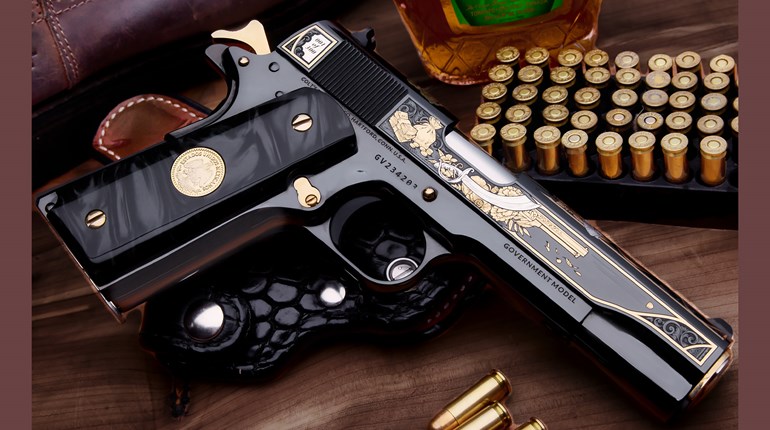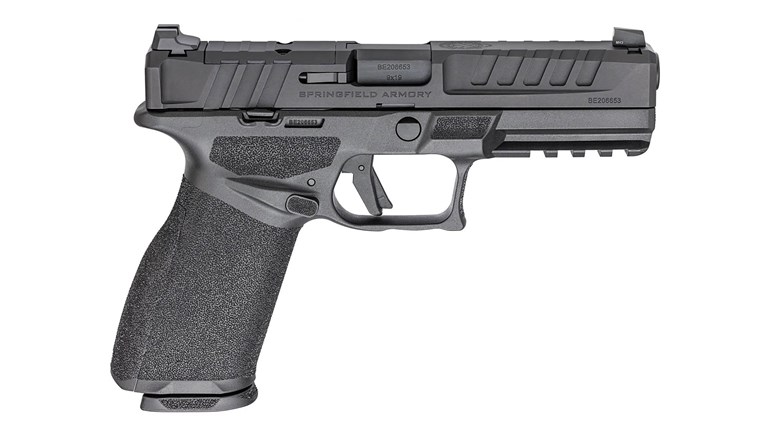
On March 4, the U.S. Supreme Court will hear Smith & Wesson Brands, Inc., et al. v. Estados Unidos Mexicanos. Specifically, the high court will consider whether American firearm manufacturers have to pay Mexico $10 billion on the theory that legally made and sold products in America—and not, for example, the narco-terrorist drug cartels in Mexico, the open border on the Mexican side or the cancerous corruption in Mexico—are responsible for harming Mexican citizens.
As the Protection of Lawful Commerce in Arms Act (PLCAA) protects gun makers and sellers from exactly this type of frivolous legal attack, a court in Massachusetts dismissed it. But the U.S. Court of Appeals for the First Circuit reversed the dismissal. The U.S. Supreme Court then opted to hear the case.
“Mexico has extinguished its constitutional arms right and now seeks to extinguish America’s,” begins an amicus brief to the U.S. Supreme Court on this case from the NRA and the Independence Institute. “To that end, Mexico aims to destroy the American firearms industry financially.”
The NRA’s brief gets more specific when it says, “Mexico seeks to bankrupt the American firearms industry by holding lawful firearms manufacturers liable for violence committed by Mexican drug cartels in Mexico—despite alleging no affirmative misconduct by the manufacturers, intent of the manufacturers to facilitate violence, or concrete nexus between the manufacturers and the cartels.”
Indeed, without delivering any evidence of illegal conduct by American arms makers, Mexico is claiming that America’s firearms companies have engaged in a series of supposedly nefarious business practices for decades. For example, they allege that the very sale of semi-automatic rifles and the production of magazines that hold more than 10 rounds make these companies liable for criminal use of guns that were smuggled by gun runners into Mexico.
And Mexico doesn’t just want billions of dollars in damages—sums that would bankrupt American gun companies—as they’ve also argued that U.S. courts should impose new gun-control measures in the United States.
The First Circuit reversed the lower court’s dismissal of this case on the theory that the PLCAA does not bar this suit because Mexico claims that defendants’ business practices somehow “aided and abetted” firearms trafficking to the cartels. Those behind this lawsuit (American gun-control supporters have been involved) argue that the mere fact that these firearms are legally sold to American citizens (and in the case of semi-automatic firearms, they have been for well over a century) makes gun companies liable for their misuse by third parties.
As previously noted, the PLCAA was enacted in 2005 for the express purpose of requiring the dismissal of frivolous lawsuits like this. No product category could survive if manufacturers had to pay because other people, unknown and unrelated to them, in whatever country, break the law.
But then, this tactic to bleed American gun companies dry with frivolous lawsuits isn’t new. From the 1980s to 2005, the anti-gun movement filed a lot of lawsuits against the firearms industry using similar frivolous legal theories. It didn’t matter to them that the courts kept ruling in favor of what is arguably the most-heavily regulated industry in the U.S. (gun makers), because the point was to bankrupt firearms manufacturers and sellers by forcing them to defend themselves in court; in fact, some anti-Second Amendment officials got the taxpayer-lined pockets of municipalities into the act by signing on to such suits. This mostly stopped when Congress passed, and President George W. Bush (R) signed, the PLCAA.
Nevertheless, today’s anti-gun movement continues to pursue this strategy. Indeed, one of Mexico’s lawyers who was listed on the complaint was Jonathan Lowy, counsel for BRADY (formerly Handgun Control, Inc.).
It is unclear how much Mexico has funded this frivolous suit. Perhaps, this suit is politically useful for any Mexican official who wishes to blame the horrifying violent crimes taking place in their nation on U.S. gun companies. Whatever the case, even as Mexican cartels smuggle people and drugs (including fentanyl) into the U.S. and guns into Mexico from other nations, the Mexican government only has a single gun store in the entire country that allows law-abiding citizens to purchase firearms. This store in Mexico City is run by the Mexican military.
Also, for perspective, realize that the Mexican government did not sue the Obama administration for Operation Fast and Furious, a gun-running operation in which officials at the Bureau of Alcohol, Tobacco, Firearms and Explosives (ATF) told U.S. gun-store owners to sell guns to known gun runners. ATF leadership at the time also ordered its agents to stand down as the guns were trafficked to Mexico. All of that came out in congressional hearings during the Obama administration. ATF whistleblowers even detailed how they were ordered to allow the bad guys to buy and traffic guns illegally to Mexico—at least one of those smuggled guns was used in the murder of a U.S. Border Patrol agent. Yet the Mexican government didn’t sue former President Barack Obama (D) or his then attorney general, Eric Holder. Instead, Mexico stayed quiet, and Obama used executive privilege to obscure any involvement the White House might have had in the scandal.
Yet now, the Mexican government is suing American firearms manufacturers for $10 billion. We’ll report on this hearing and will let you know how this case develops.


































